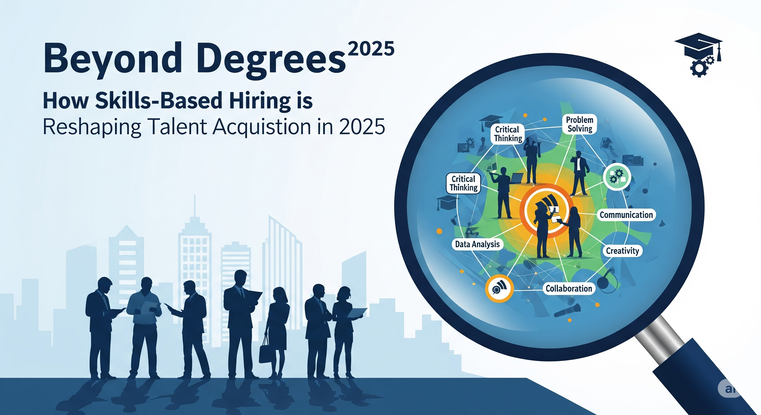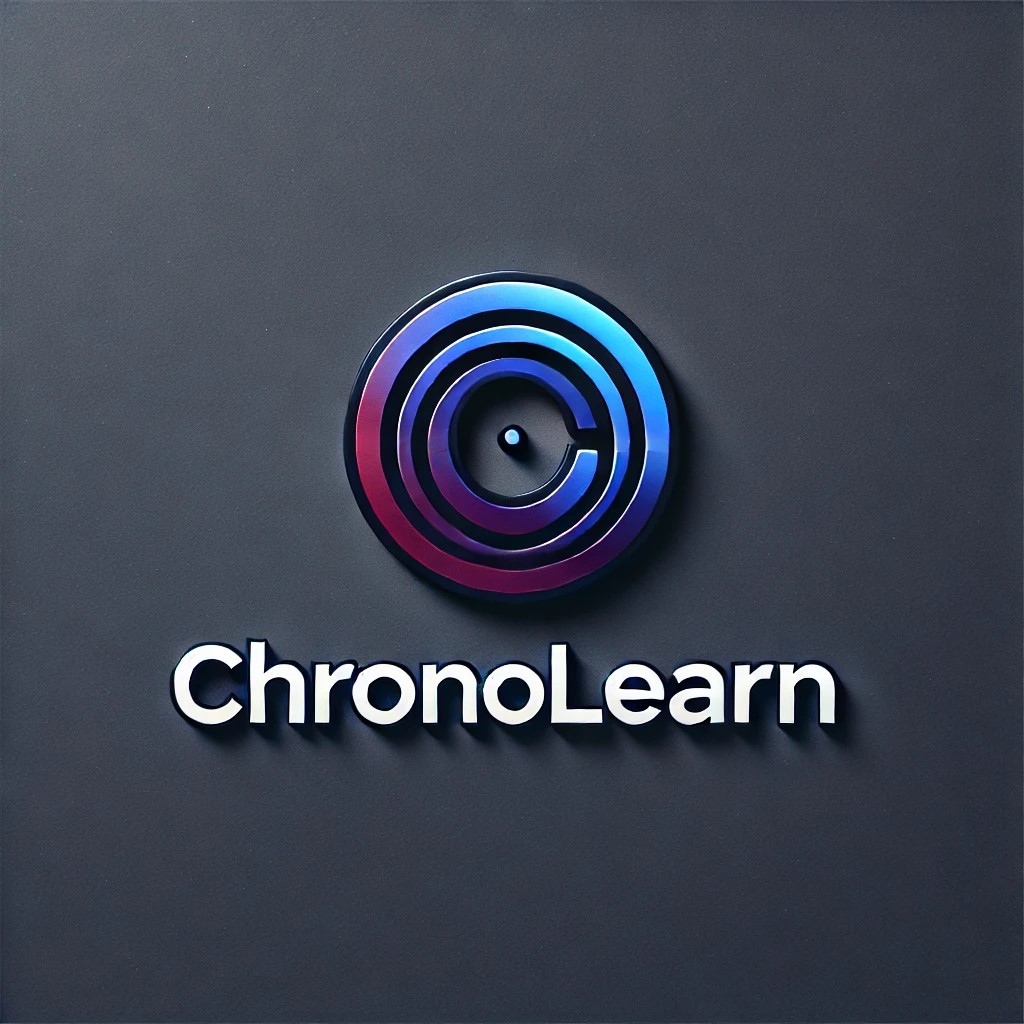
Beyond Degrees: How Skills-Based Hiring is Reshaping Talent Acquisition in 2025
Introduction
For decades, college degrees have been the primary entry pass into corporate careers. Recruiters filtered resumes based on educational qualifications, often dismissing equally capable candidates who lacked a formal degree.
But in 2025, a seismic shift is underway. Organizations across industries are beginning to value skills, capabilities, and real-world experience over academic credentials. This approach—known as skills-based hiring—is redefining how companies attract, evaluate, and retain talent.
From tech giants like Google and IBM to startups and mid-sized businesses, employers are dropping rigid degree requirements and instead focusing on skills verification, micro-credentials, certifications, and hands-on projects. This blog explores why skills-based hiring is trending, its benefits, its challenges, and what it means for both companies and job seekers in the modern workplace.
What is Skills-Based Hiring?
Skills-based hiring is a recruitment method where candidates are evaluated based on what they can do, not just what educational qualifications they have.
Instead of screening resumes for degrees, employers use alternative criteria such as:
-
Technical Assessments – coding tests, case studies, and simulations
-
Portfolio Reviews – design portfolios, writing samples, GitHub repositories
-
Certifications & Micro-Credentials – AWS, Google Career Certificates, PMP, etc.
-
Work Experience & Projects – internships, freelancing, and bootcamp projects
-
Soft Skill Evaluations – adaptability, collaboration, problem-solving, communication
This model acknowledges that talent can come from anywhere—self-learners, career switchers, freelancers, and professionals without formal degrees but with valuable expertise.
Why is Skills-Based Hiring Taking Over in 2025?
The global work environment has shifted dramatically, influenced by digital transformation, economic uncertainty, and the demand for agility. Let’s break down the top drivers:
1. Rapid Technological Change
Industries are evolving faster than universities can update their curricula. Degrees often lag behind real-world skill needs. For instance:
-
AI and machine learning roles require hands-on knowledge of frameworks like TensorFlow and PyTorch.
-
Cloud computing jobs expect candidates to know AWS, Azure, or Google Cloud.
-
Cybersecurity roles demand knowledge of emerging threats that are not in textbooks yet.
Employers can’t wait for graduates—they need job-ready talent today.
2. Widening Skill Gaps
According to a 2025 LinkedIn report, over 60% of employers struggle to fill skill-based roles in cybersecurity, data science, and green energy. Degrees alone don’t close this gap—skills do.
3. Rise of Online Learning & Alternative Credentials
-
Google, Meta, and Microsoft now offer career certifications recognized by employers.
-
EdTech platforms like Coursera, Udemy, and LinkedIn Learning provide practical, verified skill credentials.
-
Bootcamps (Full Stack, Data Science, Cloud DevOps) produce industry-ready talent in months, not years.
4. Diversity, Equity & Inclusion (DEI)
Degree-based hiring often favors candidates from privileged backgrounds. Skills-based hiring opens doors for:
-
Professionals from non-traditional backgrounds
-
Career switchers
-
Candidates from emerging economies
-
Women returning to work after a career break
This makes hiring more inclusive and merit-driven.
5. AI & Automation in Recruitment
Recruitment tech has advanced. AI-powered tools now:
-
Analyze skill proficiency instead of keywords in resumes
-
Conduct gamified skill assessments
-
Use predictive analytics to evaluate cultural fit
This makes hiring more objective, efficient, and transparent.
Benefits of Skills-Based Hiring
✅ For Employers
-
Stronger Workforce Alignment – Hire people who can perform from day one.
-
Reduced Turnover – Employees are more satisfied when jobs match their skills.
-
Broader Talent Pool – Access skilled workers without limiting to degree-holders.
-
Cost-Effective Hiring – Faster recruitment cycles reduce hiring costs.
-
Future-Proof Teams – Skills-first teams adapt better to new technologies.
✅ For Job Seekers
-
Equal Opportunities – Talent is judged on ability, not pedigree.
-
Career Mobility – Skills are transferable across industries.
-
Faster Entry into Careers – Bootcamps and certifications shorten timelines.
-
Recognition for Non-Traditional Learners – Freelancers, self-taught coders, and gig workers gain credibility.
Examples of Skills-Based Hiring in Action
-
Google – Removed degree requirements for many roles; focuses on certifications and portfolio work.
-
IBM – Over 50% of roles in cybersecurity and cloud are open to candidates without degrees.
-
PwC – Implements skill-based assessments for entry-level roles.
-
Accenture – Uses AI-powered tests to assess digital and soft skills.
-
Startups – Hire based on GitHub commits, LinkedIn endorsements, and project portfolios.
Trending Skills Recruiters Want in 2025
According to World Economic Forum & LinkedIn Talent Insights, the most in-demand skills are:
-
AI & Machine Learning Development
-
Cloud Computing & DevOps Engineering
-
Cybersecurity & Ethical Hacking
-
Green Tech & Sustainability
-
Blockchain & Web3 Applications
-
Digital Marketing & SEO/SEM
-
Emotional Intelligence (EQ) & Leadership
-
Agile Project Management & Scrum
-
Data Analytics, Visualization & BI Tools
-
UX/UI & Human-Centered Design
The takeaway: Future jobs are hybrid—mixing technical, digital, and soft skills.
Challenges of Skills-Based Hiring
While promising, this shift isn’t without challenges:
-
Standardizing Skills – Unlike degrees, skills vary in depth and recognition.
-
Bias in Assessments – Poorly designed tests can unintentionally exclude candidates.
-
Employer Readiness – Some organizations still trust traditional degrees more.
-
Verification of Skills – Employers must differentiate between “claimed” and “proven” skills.
How Companies Can Implement Skills-Based Hiring
To adopt this model effectively, businesses in 2025 should:
-
Redesign Job Descriptions – Focus on tasks, not degrees.
-
Adopt Skill-Based Assessments – Use coding challenges, case studies, or project simulations.
-
Leverage AI Tools – Use Applicant Tracking Systems (ATS) with skill-matching.
-
Promote Internal Upskilling – Train employees with micro-credentials and certifications.
-
Collaborate with EdTech & Bootcamps – Build hiring pipelines from training providers.
Future Outlook: What’s Next?
By 2030, experts predict:
-
Skills Passport Systems – A blockchain-verified digital resume showcasing skills and projects.
-
Global Standardized Skill Certifications – Similar to ISO standards for industries.
-
Hybrid AI-HR Models – AI pre-screens candidates by skill; humans finalize cultural fit.
-
Continuous Learning Workforces – Employees expected to update skills yearly.
-
Decline of Degree-Only Hiring – Degree-only filters will become obsolete in most industries.
Conclusion
The world of work is evolving at unprecedented speed. As industries transform, skills-based hiring is emerging as the most reliable approach to building capable, future-ready teams.
For employers, it means smarter hiring and higher retention. For job seekers, it means fairer access and limitless opportunities.
The message is clear: In 2025 and beyond, degrees may open doors—but skills are what truly unlock opportunities.






